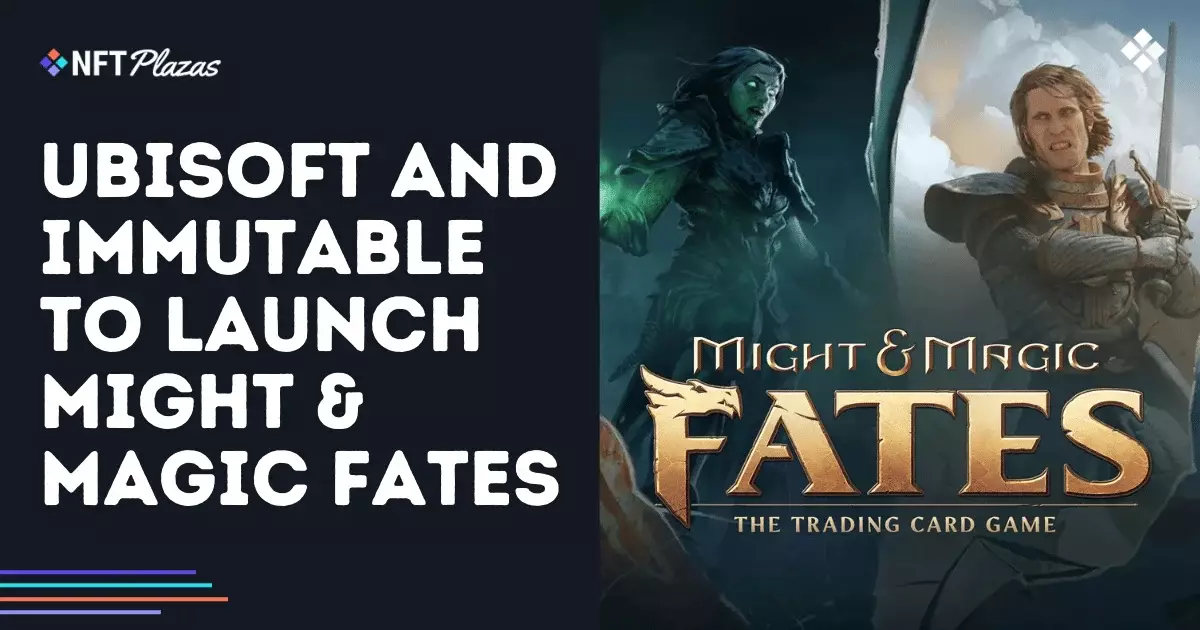In an exciting development for the gaming world, Immutable, a leading player in blockchain technology, and Ubisoft, a giant in traditional video gaming, have joined forces to create “Might & Magic Fates.” This partnership signifies more than just a collaboration between two entities; it represents a potential seismic shift in how we perceive and interact with video games. Unlike many previous endeavors that merely dabbled in blockchain, this project is a bold, strategic convergence that may redefine the gaming landscape. The collaboration positions itself as the largest in Immutable’s history, projecting a sense of scale that few ventures can match. Center-right advocates of economic innovation should relish this optimistic collaboration, as it embodies the intersection of creativity and technology.
The Resurgence of a Classic Franchise
Might & Magic has a storied legacy that stretches back to the 1980s, boasting a dedicated fanbase and a plethora of beloved titles. What sets “Might & Magic Fates” apart is its intention to breathe new life into the franchise while respecting its rich history. By drawing upon the well-established factions, characters, and lore from previous games, the developers are not merely banking on nostalgia; they are crafting an experience designed to entice both veterans and newcomers alike. In an era where many developers fail to honor their roots, Immutable and Ubisoft’s approach stands as a testament to the potential value found in combining tradition with innovation.
The Free-to-Play Model with a Twist
One of the most intriguing aspects of “Might & Magic Fates” is its free-to-play model intertwined with optional Web3 features. While free-to-play games often face criticism for leading to pay-to-win scenarios, this title actively seeks to avoid that pitfall. Players will have the ability to trade cards through the Immutable blockchain, but crucially, this mechanic will not disturb the core gameplay experience. It is a sophisticated approach that seeks to ensure fairness while inviting players to explore the possibilities of blockchain technology. This is a significant step from those who typically view gaming as a mere cash grab; rather, it emphasizes a commitment to player empowerment and community engagement.
A Game Designed for Global Appeal
The ambition behind “Might & Magic Fates” is staggering, particularly with Immutable co-founder Robbie Ferguson’s declaration that the aim is to reach over a billion players worldwide. This underscores a modern perspective on gaming as a unifying platform that transcends geographical and cultural boundaries. The established user base of Ubisoft Connect, comprising over 138 million players, serves as an eager audience ripe for engagement. For proponents of market-driven innovation, this endeavor could serve as a case study on how traditional and modern gaming methodologies can coexist and flourish.
Looking Ahead: Potential Transformations in Gaming Culture
As “Might & Magic Fates” progresses toward its anticipated launch later this year, there are whispers about broader ambitions and future developments within the project. Will this game serve as a catalyst for other developers to explore similar partnerships? Can it alter perceptions of blockchain in gaming from a niche interest to a mainstream imperviousness? The potential is vast, and if executed effectively, it could usher in a new era of gaming that prioritizes the player experience while incorporating cutting-edge technology. In a world often bogged down by skepticism toward advancements, “Might & Magic Fates” has the opportunity to rewrite the narrative, demonstrating that innovation and tradition can indeed go hand in hand.















